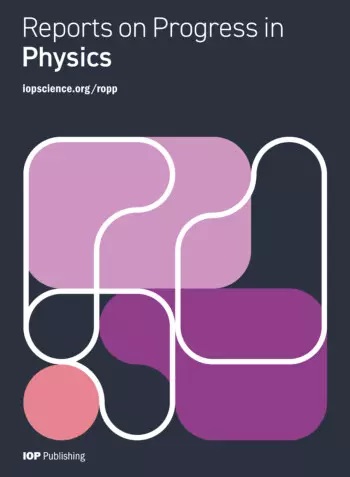Macroscopicity and observational deficit in states, operations, and correlations.
IF 20.7
1区 物理与天体物理
Q1 PHYSICS, MULTIDISCIPLINARY
引用次数: 0
Abstract
To understand the emergence of macroscopic irreversibility from microscopic reversible dynamics, the idea of coarse-graining plays a fundamental role. In this work, we develop a unified inferential framework for macroscopic states, that is, coarse descriptions of microscopic quantum systems that can be inferred from macroscopic measurements. Building on quantum statistical sufficiency and Bayesian retrodiction, we characterize macroscopic states through equivalent abstract (algebraic) and explicit (constructive) formulations.Central to our approach is the notion of observational deficit, which quantifies the degree of irretrodictability of a state relative to a prior and a measurement. This leads to a general definition of macroscopic entropy as an inferentially grounded measure of asymmetry under Bayesian inversion. We formalize this structure in terms of inferential reference frames, defined by the pair consisting of a prior and a measurement, which encapsulate the observer's informational perspective.We then formulate a resource theory of microscopicity, treating macroscopic states as free states and introducing a hierarchy of macroscopicity-non-generating operations. This theory unifies and extends existing resource theories of coherence, athermality, and asymmetry.Finally, we apply the framework to study quantum correlations under observational constraints, introducing the notion of observational discord and deriving necessary and sufficient conditions for their vanishing in terms of information recoverability.宏观和观测缺陷的状态,操作,和相关性。
为了理解微观可逆动力学中宏观不可逆性的产生,粗粒化思想起着基本的作用。在这项工作中,我们为宏观状态开发了一个统一的推理框架,即可以从宏观测量推断出的微观量子系统的粗略描述。在量子统计充足性和贝叶斯回溯的基础上,我们通过等效的抽象(代数)和显式(构造)公式表征宏观状态。我们方法的核心是观测缺陷的概念,它量化了相对于先验和测量的状态的不可逆转程度。这导致宏观熵的一般定义为贝叶斯反演下的不对称性的推论基础度量。我们将这种结构形式化为推理参考框架,由先验和测量组成的对定义,它封装了观察者的信息视角。然后,我们制定了微观资源理论,将宏观状态视为自由状态,并引入了宏观-非生成操作的层次结构。该理论统一并扩展了现有的相干性、热性和不对称性资源理论。最后,我们应用该框架研究了观测约束下的量子相关,引入了观测不和谐的概念,并从信息可恢复性的角度推导了它们消失的充分必要条件。
本文章由计算机程序翻译,如有差异,请以英文原文为准。
求助全文
约1分钟内获得全文
求助全文
来源期刊

Reports on Progress in Physics
物理-物理:综合
CiteScore
31.90
自引率
0.00%
发文量
45
审稿时长
6-12 weeks
期刊介绍:
Reports on Progress in Physics is a highly selective journal with a mission to publish ground-breaking new research and authoritative invited reviews of the highest quality and significance across all areas of physics and related areas. Articles must be essential reading for specialists, and likely to be of broader multidisciplinary interest with the expectation for long-term scientific impact and influence on the current state and/or future direction of a field.
 求助内容:
求助内容: 应助结果提醒方式:
应助结果提醒方式:


